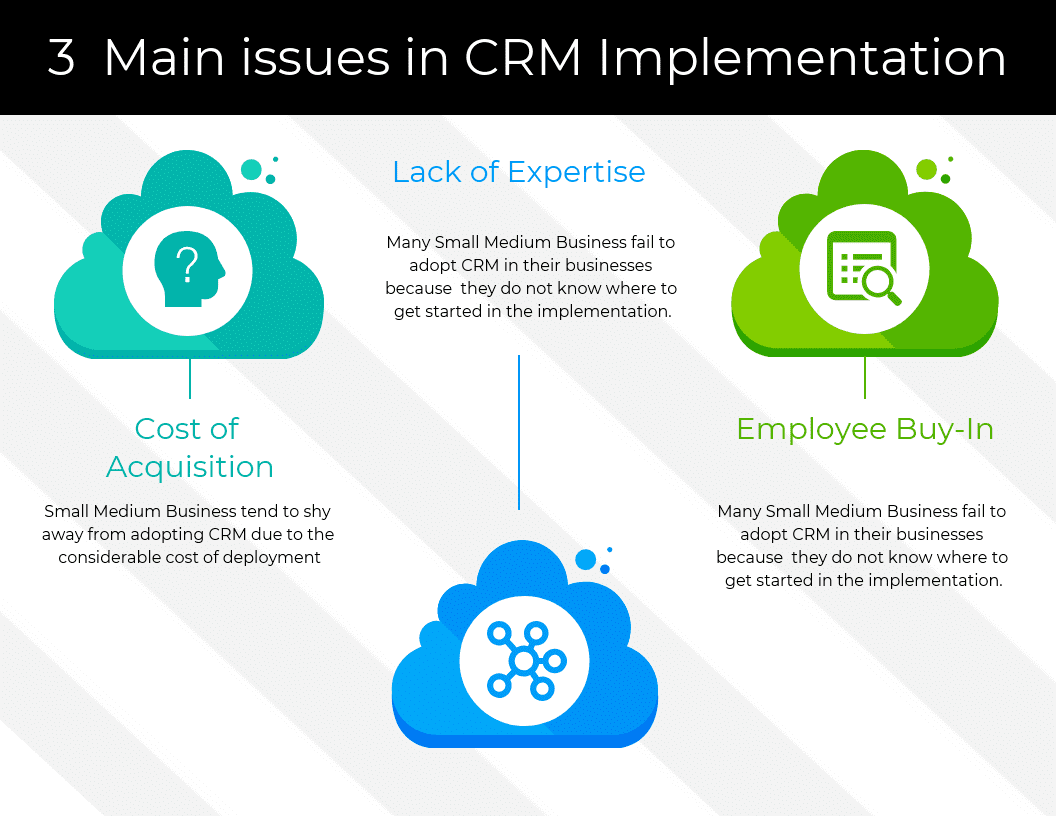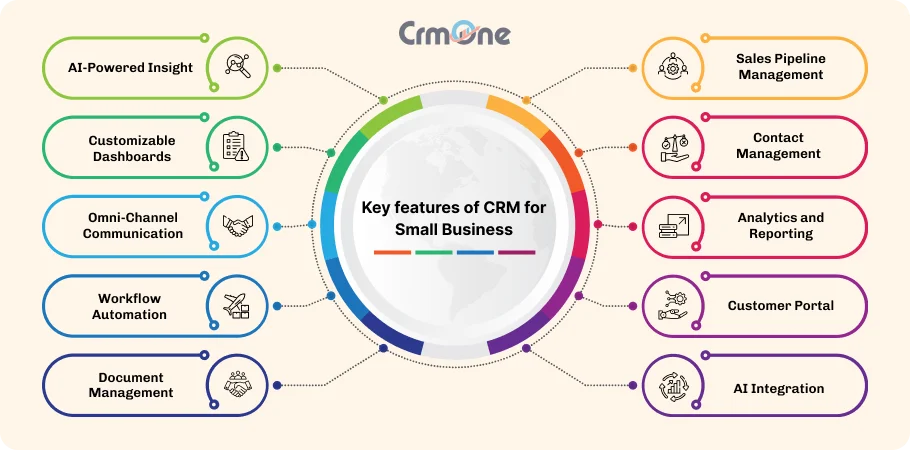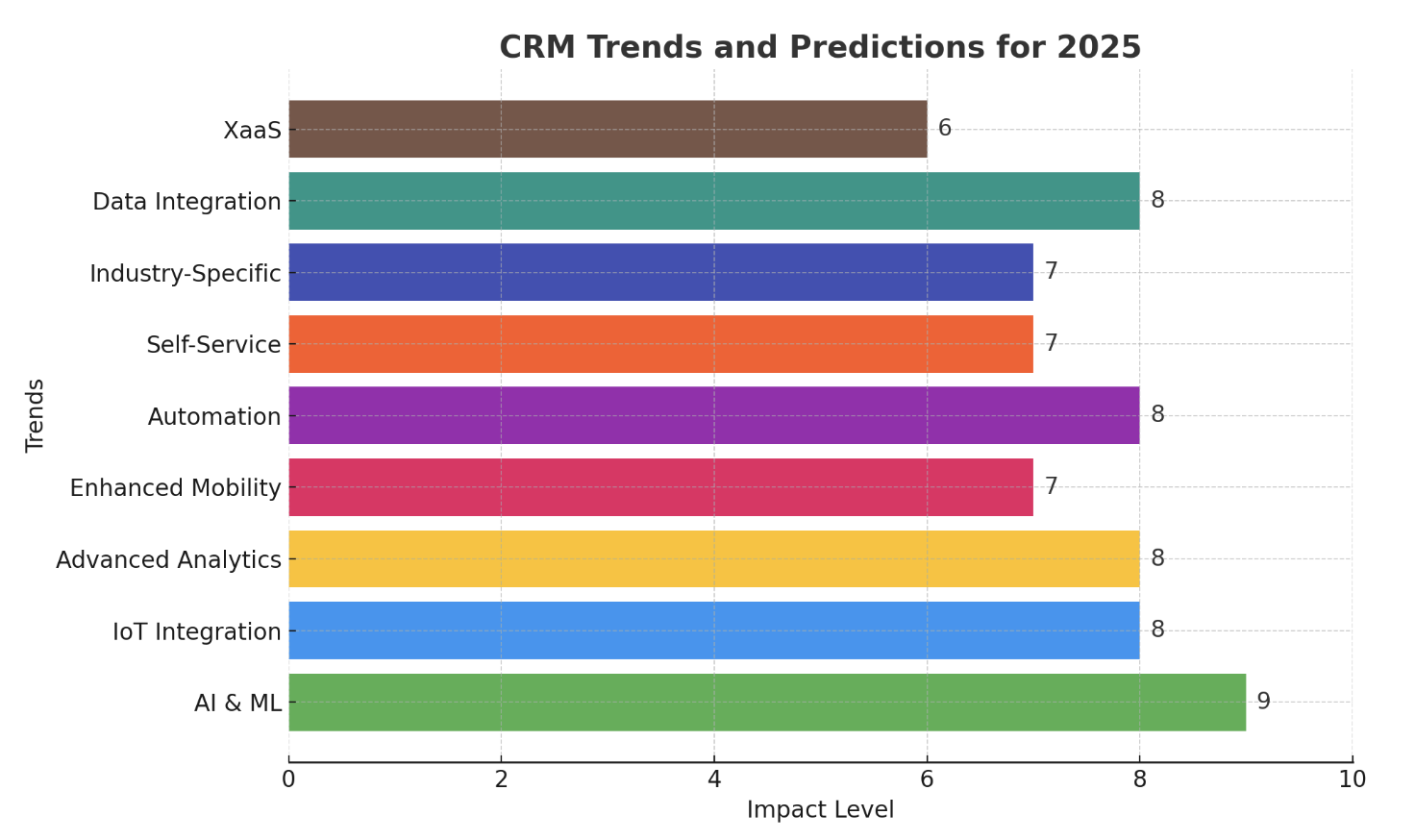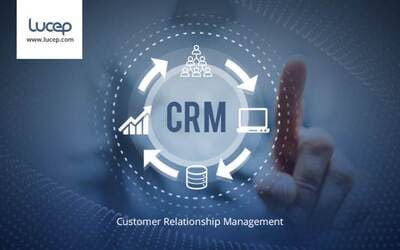Small Business CRM Insights 2025: Navigating the Future of Customer Relationships
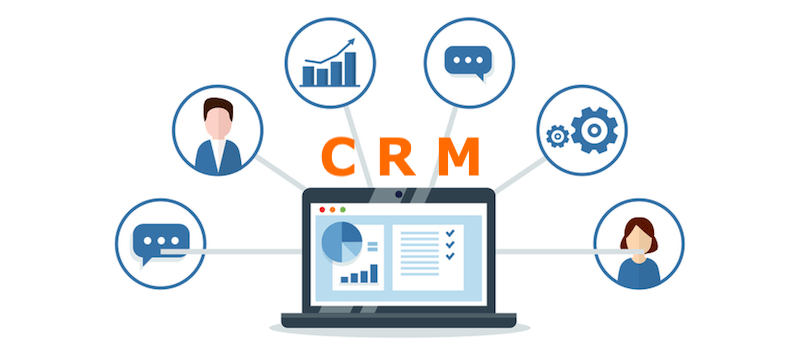
Small Business CRM Insights 2025: Navigating the Future of Customer Relationships
The landscape of customer relationship management (CRM) is constantly evolving. For small businesses, staying ahead of the curve is not just advantageous; it’s essential for survival and growth. This article delves into the key CRM insights that will shape the small business world in 2025, providing a roadmap for success in an increasingly competitive market.
The Rise of AI-Powered CRM
Artificial intelligence (AI) is no longer a futuristic concept; it’s a present-day reality, and its impact on CRM is profound. In 2025, small businesses will increasingly leverage AI-powered CRM solutions to automate tasks, personalize customer experiences, and gain deeper insights into customer behavior. This shift represents a fundamental change in how businesses interact with their customers.
AI-Driven Automation
One of the most significant benefits of AI in CRM is automation. Imagine a system that automatically responds to customer inquiries, schedules appointments, and even drafts personalized emails. AI can handle these repetitive tasks, freeing up valuable time for small business owners and their teams to focus on more strategic initiatives, such as building relationships and driving sales. Furthermore, automation reduces the risk of human error, ensuring consistency and accuracy in customer interactions. Think of it as having a tireless, highly efficient virtual assistant working around the clock.
Personalized Customer Experiences
AI excels at analyzing vast amounts of data to identify patterns and predict customer behavior. In 2025, CRM systems will use this capability to deliver highly personalized experiences. This means tailoring product recommendations, offers, and even website content to individual customer preferences. The result is a more engaging and relevant customer journey, leading to increased satisfaction, loyalty, and ultimately, higher conversion rates. Consider the power of knowing what your customer wants before they even realize it themselves – that’s the power of AI-driven personalization.
Predictive Analytics and Insights
Beyond automation and personalization, AI-powered CRM provides invaluable insights into customer behavior and market trends. By analyzing data, AI can predict which customers are likely to churn, identify cross-selling and upselling opportunities, and even forecast future sales. This predictive capability empowers small businesses to make data-driven decisions, optimize their marketing efforts, and proactively address potential problems before they impact the bottom line. It’s like having a crystal ball that reveals the future of your customer relationships.
Mobile CRM: The On-the-Go Advantage
In 2025, mobile CRM will be more crucial than ever. Small businesses are increasingly operating in a mobile-first world, and their CRM systems must reflect this reality. Mobile CRM allows businesses to access and update customer data, manage leads, and communicate with customers from anywhere, at any time. This level of accessibility is essential for staying connected and responsive in today’s fast-paced environment.
Real-time Access to Customer Data
With mobile CRM, sales representatives and customer service agents can access critical customer information instantly, regardless of their location. This means they can quickly answer questions, resolve issues, and provide personalized support, even when they’re on the road. Imagine being able to pull up a customer’s history, purchase details, and preferences on your smartphone during a meeting – that’s the power of real-time access.
Improved Sales Productivity
Mobile CRM streamlines the sales process by allowing sales teams to manage leads, track progress, and close deals more efficiently. They can update contact information, log interactions, and schedule follow-ups directly from their mobile devices, eliminating the need to return to the office to update their CRM. This increased productivity translates into more sales and a higher return on investment.
Enhanced Customer Communication
Mobile CRM facilitates seamless communication with customers through various channels, including email, SMS, and even social media. Sales and service teams can respond to inquiries promptly, provide updates, and build stronger relationships, no matter where they are. This responsiveness is crucial for building trust and loyalty in the digital age. Think about the convenience of being able to instantly respond to a customer’s question while you are at a conference.
Integration is Key: The Connected CRM Ecosystem
In 2025, the most successful small businesses will be those that integrate their CRM systems with other key business applications. This creates a connected ecosystem where data flows seamlessly between different departments, providing a holistic view of the customer and enabling more informed decision-making. This integration is about more than just convenience; it’s about creating a more efficient and effective business operation.
Integration with Marketing Automation
Integrating CRM with marketing automation platforms allows businesses to track leads from their initial contact to the point of sale. This provides valuable insights into the effectiveness of marketing campaigns and enables businesses to personalize their messaging and offers based on customer behavior. This integration is vital for creating a seamless customer journey and maximizing marketing ROI.
Integration with E-commerce Platforms
For businesses that sell online, integrating CRM with their e-commerce platform is essential. This allows them to track customer purchases, manage orders, and provide personalized recommendations based on past behavior. This integration creates a unified view of the customer’s shopping experience, enabling businesses to provide better service and drive repeat sales. It’s about knowing what your customer has purchased and then using that information to offer them something they’ll love.
Integration with Accounting Software
Integrating CRM with accounting software streamlines financial processes by automating tasks such as invoicing and payment tracking. This integration reduces the risk of errors, improves efficiency, and provides a more complete view of the customer’s financial relationship with the business. This can also help in identifying customers who may be behind on payments or who have a history of late payments.
Data Privacy and Security: Building Trust
With increasing concerns about data privacy and security, small businesses must prioritize protecting their customers’ information. In 2025, businesses that demonstrate a strong commitment to data privacy and security will gain a significant competitive advantage. This is about more than just compliance; it’s about building trust with your customers and protecting your business from potential risks.
Compliance with Data Privacy Regulations
Small businesses must be aware of and comply with all relevant data privacy regulations, such as GDPR and CCPA. This includes obtaining customer consent, providing transparency about data usage, and protecting customer data from unauthorized access. Compliance is not just a legal requirement; it’s a demonstration of respect for your customers’ privacy. This also builds trust and encourages the customer to interact with your business.
Robust Security Measures
Implementing robust security measures, such as encryption, multi-factor authentication, and regular security audits, is crucial for protecting customer data from cyber threats. Small businesses should invest in security solutions that are appropriate for their size and budget. This not only protects customer data but also protects the business from potential financial and reputational damage. Security is not an afterthought; it’s an integral part of doing business.
Transparency and Communication
Being transparent with customers about how their data is collected, used, and protected is essential for building trust. Small businesses should have a clear and concise privacy policy and communicate it to customers in a way that is easy to understand. This transparency demonstrates a commitment to ethical business practices and strengthens customer relationships. It is about being open and honest with your customers.
The Human Touch: Balancing Technology and Personalization
While technology is transforming CRM, it’s crucial to remember the importance of the human touch. In 2025, small businesses will need to find the right balance between leveraging technology for efficiency and personalization while maintaining genuine human connections with their customers. This is about creating a customer experience that is both efficient and emotionally resonant.
Empowering Employees
Equipping employees with the right tools and training is essential for delivering exceptional customer service. This includes providing them with access to the CRM system, training them on how to use it effectively, and empowering them to make decisions that benefit the customer. Happy employees translate to happy customers. Make sure your employees have the resources they need to succeed and provide excellent service.
Personalized Interactions
While AI can automate many tasks, it’s important to inject a human element into customer interactions. This means using customer data to personalize conversations, showing empathy, and going the extra mile to meet their needs. This is where the human touch truly shines. It’s about making the customer feel valued and understood.
Building Relationships
CRM is not just about managing data; it’s about building relationships. Small businesses should focus on building long-term relationships with their customers by providing excellent service, being responsive to their needs, and showing that they care. Building strong customer relationships is the foundation of any successful business. This is about more than just a transaction; it’s about creating a loyal customer base.
Choosing the Right CRM System: A Strategic Decision
Selecting the right CRM system is a critical decision for any small business. In 2025, the marketplace will offer a wide range of options, each with its own features, benefits, and pricing models. Small businesses need to carefully evaluate their needs and choose a system that aligns with their goals and budget.
Assess Your Needs
Before choosing a CRM system, small businesses should carefully assess their needs. This includes identifying their goals, understanding their customer base, and evaluating their existing processes. This assessment will help them determine which features are essential and which are not. A thorough needs assessment is the first step towards making the right choice. Think about what you want to achieve with your CRM system.
Consider Scalability
Small businesses should choose a CRM system that can scale as their business grows. This means selecting a system that can accommodate an increasing number of users, data, and features. Choosing a scalable system will save them the time and expense of having to switch to a new system as they grow. Plan for the future and choose a system that can keep up with your business.
Evaluate Pricing and Features
CRM systems come in a variety of pricing models, from free to enterprise-level. Small businesses should carefully evaluate the pricing and features of different systems to determine which one offers the best value for their money. Consider the features you need, the number of users, and the support options available. Ensure the pricing matches what you need. Don’t pay for features you won’t use.
Prioritize User-Friendliness
The best CRM system is one that is easy to use. Small businesses should choose a system with a user-friendly interface and intuitive features. This will make it easier for employees to adopt the system and get the most out of it. A system that’s easy to use will save time and frustration. Make sure your team can use the system effectively.
CRM Trends to Watch in 2025
Beyond the core insights, several emerging trends will shape the CRM landscape in 2025. Small businesses that stay informed about these trends will be better positioned to adapt and thrive.
Hyper-Personalization
Moving beyond standard personalization, hyper-personalization will leverage AI and data analytics to deliver highly tailored experiences to individual customers. This includes personalized product recommendations, customized content, and even proactive customer service. This trend will revolutionize how businesses interact with their customers.
Voice-Enabled CRM
Voice-enabled CRM systems will become increasingly popular, allowing users to access and update customer data using voice commands. This will improve efficiency and convenience, particularly for sales representatives and customer service agents on the go. It is a hands-free way of interacting with your CRM.
The Rise of Conversational AI
Conversational AI, such as chatbots and virtual assistants, will play a more significant role in customer interactions. These AI-powered tools will handle a wider range of customer inquiries, provide personalized support, and even assist with sales and marketing tasks. This trend will help businesses provide 24/7 customer service and improve their customer experience.
Focus on Customer Journey Mapping
Small businesses will increasingly focus on mapping the customer journey, identifying key touchpoints, and optimizing the customer experience at each stage. This involves understanding how customers interact with the business, from initial contact to purchase and beyond. This will allow businesses to identify areas for improvement and create a better customer experience.
Conclusion: Embracing the Future of CRM
The CRM landscape is constantly evolving, and small businesses must adapt to thrive. By embracing the insights and trends discussed in this article, small businesses can position themselves for success in 2025 and beyond. This means leveraging AI, embracing mobile CRM, integrating their systems, prioritizing data privacy and security, balancing technology with the human touch, and choosing the right CRM system. In the future, your customer relationships will be the most important thing.

